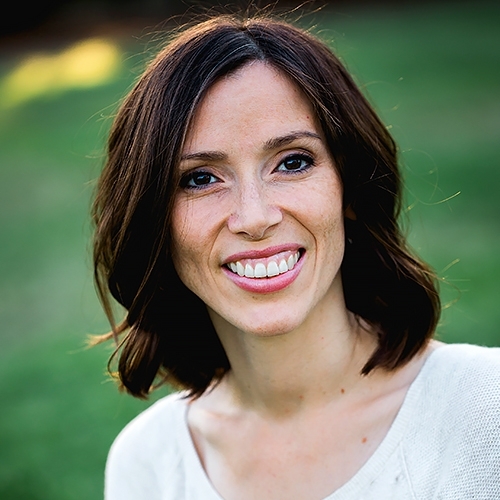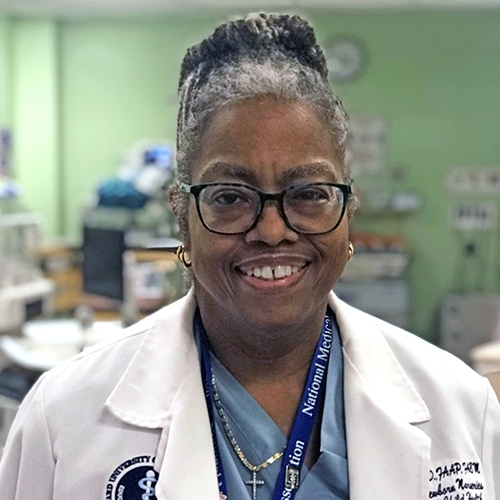
Development and Nutrition for IBCLCs - 5 CERPs - Pack 1
Are you looking to expand your knowledge in I. Development and Nutrition as outlined by the IBCLC Detailed Content Outline? If your personalized Professional Development Plan (PPDP) has revealed a need for further education in this field, our 5-hour comprehensive lecture package is an excellent choice.
Our package provides education on the I. Development and Nutrition category, with a specific focus on Infant and Maternal Development and Nutrition. Our expert speakers cover the continuing education requirements for this category, offering you a valuable opportunity to deepen your understanding and enhance your expertise.
To ensure the best learning experience, please confirm you haven't already taken any of these lectures at the time of purchase. If you encounter any issues after purchase, please reach out to [email protected] and we'll find a suitable replacement for you


Paulina is the mother of three multicultural Latino children and Project Director for Lifespan Local. Paulina earned her BS in Psychology from the Pennsylvania State University, a MS in Organizational leadership from the University of Denver and is completing her PhD in Health and Behavioral Sciences at the University of Colorado - Denver. Paulina has over 18 years of experience working with families with young children. As a Maternal Child Health specialist for Jefferson County Public Health, she developed a NICU follow-up home visitation program and the pediatric emergency preparedness plan, co-founded and coordinated the Conectando Network (former Adelante Jeffco), established community navigation and lactation support groups focused on the Latino Spanish speaking community, and lead other initiatives to support leadership and partnerships among communities and organizations. During the COVID-19 pandemic, she managed the new program Whole Community Inclusion to ensure the pandemic response and recovery implementation included health equity practices that recognize the needs and the strengths of priority populations in the county. Her areas of current work include promoting perinatal and infant mental health along the continuum of care; building community capacity to navigate health and education systems; facilitating organizational change to embrace linguistic and culturally responsive practices; and establishing community-placed participatory programs to strengthen communities. She likes to be with people, learn from and with others, and connect passions for meaningful work.
Topic: From the NICU to the home: mother’s experiences - [View Abstract]
Topic: Leadership Skills in Lactation: Make Extraordinary Things Happen - [View Abstract]
Topic: Liderazgo en Lactancia - Para Alcanzar Metas Extraordinarias - [View Abstract]
Topic: Nursing A Preemie, Perspectives For Lactation Supporters and Professionals - [View Abstract]
Objective 1: Identify opportunities and challenges to establish lactation in the NICU; ;
Objective 2: Analyze the role of feedings in the context of infant development and parental role attainment;;
Objective 3: Identify strategies to support lactation for families with children with special needs and in a variety of contexts.
In this presentation participants will learn about parents’ experiences with feedings in the NICU and continuation of lactation after going home, the importance of parent-child mutual-regulation and its implication in feeding success, strategies for lactation professionals to support the nursing relationship, and infant mental health concepts in relationship to feeding.
This presentation will include qualitative and quantitative data to broaden participants understanding of the context of lactation with a premature baby or a baby with special medical conditions. The participants will also receive information about multidisciplinary approaches and initiatives to support families with preemie babies.


Bryna is a lactation consultant, mentor, educator, and birth doula in the Pacific Northwestern United States. They are active in their community as an advocate for mutual aid, reproductive justice, and reduction in barriers to care. They also own and manage an inclusive private practice. As a member of both Queer and Neurodivergent communities, offering inclusive care on every level is very important to Bryna. Their vision is to offer information and tools to providers to build a community of comprehensive, concordant, and individualized care for all families in the perinatal period.
Topic: Breastfeeding With Ease: The Impact of Infant Reflex Emergence and Integration - [View Abstract]
Topic: Rhythmic Movement for Breastfeeding Function - [View Abstract]
Objective 1: Identify the impacts of movement on development and learning ;
Objective 2: Describe the reflexes that are present in the infant feeding response and explain their normal expression and expected function;
Objective 3: Discuss the impacts of trauma and modern barriers to reflex integration and address opportunities to help mitigate them;
Disorganized or absent infant reflexes can create challenges for breastfeeding/chestfeeding. This presentation takes a close look at the role of movement in the integration of disorganized infant reflexes and the use of rhythmic movement as a method for overcoming infant feeding challenges. This talk also covers socio-cultural impacts of trauma, lack of opportunity for movement, and modern care system barriers to reflex integration.


Dr. Jessie Young is a Pediatric Chiropractor near Olympia Washington who works closely with other healthcare professionals to provide comprehensive and collaborative care. She has specialized education in treating breastfeeding difficulties and is near completion of her IBCLC certification. As part of a family's health care team, Dr. Young helps resolve musculoskeletal issues causing breastfeeding difficulties including neck tension, TMJ dysfunction, torticollis, and painful latch. She also provides pre and post-frenotomy care for musculoskeletal issues contributing to tethered oral tissue. Providers, parents and patients rely on Dr. Young for her comprehensive diagnostic and treatment approaches, including modified chiropractic adjustments, myofascial release, therapeutic exercise, and craniosacral techniques. Dr. Young currently volunteers to promote literature contributions and advancement as the Research Chair for the American Chiropractic Association Council on Chiropractic Pediatrics.
Delegates will be able to:
1. Evaluate for musculoskeletal issues that can interfere with successful breastfeeding
2. Identify indications for co-management and/or referral
3. Communicate with parents and other providers the safety and effectiveness of manual therapy for breastfeeding issues
Identifying musculoskeletal issues that can impact breastfeeding is an important component of proper management. When surveyed, IBCLCs reported that half were not comfortable identifying musculoskeletal issues .Referrals for musculoskeletal problems were thus hypothesized to be delayed as a result of this discomfort. It was recommended that lactation professionals could benefit from more specialized training in identifying musculoskeletal issues, as early intervention for breastfeeding difficulties is a critical determinant in success.
Attendees will be able to take away the skills and tools to better identify musculoskeletal problems, the indications for co-management/referral and the safety and effectiveness of manual therapy for suboptimal breastfeeding . Issues such as TMJ dysfunction, postural asymmetry, cranial asymmetry, myofascial and joint restrictions commonly cause suboptimal breastfeeding. Current literature supports the fact that favorable outcomes are probable when these issues are treated with manual therapy. Thus the timely identification, referral, and resolution of musculoskeletal issues is one factor that can contribute to the resolution of breastfeeding difficulties.


Bryna is a lactation consultant, mentor, educator, and birth doula in the Pacific Northwestern United States. They are active in their community as an advocate for mutual aid, reproductive justice, and reduction in barriers to care. They also own and manage an inclusive private practice. As a member of both Queer and Neurodivergent communities, offering inclusive care on every level is very important to Bryna. Their vision is to offer information and tools to providers to build a community of comprehensive, concordant, and individualized care for all families in the perinatal period.
Topic: Breastfeeding With Ease: The Impact of Infant Reflex Emergence and Integration - [View Abstract]
Topic: Rhythmic Movement for Breastfeeding Function - [View Abstract]
Objective 1: Discuss the process of reflex emergence and integration as they relate to breast/chestfeeding.;
Objective 2: Explain the importance of reflexes in breastfeeding. ;
Objective 3: Explain the impacts of trauma on infant reflex integration;
Reflexes play an important role in role in an infant’s ability to feed effectively. This foundational presentation discusses the process of reflex emergence and integration, the importance of reflexes in breastfeeding/chestfeeding and the impact of disorganized or absent reflexes. Also covered will be the impacts of trauma on infant reflex integration and the role of the lactation consultant in assessment and referral.


Michal A. Young, M.D., FAAP, FABM is currently an Associate Professor in the Department of Pediatrics and Child Health at Howard University College of Medicine. She also serves as the Medical Director of the B.L.E.S.S. (Breastfeeding Lactation Education Support Services) Initiative as well as Director of the NICU and Newborn Services, at Howard University Hospital. She is a graduate of Howard University College of Medicine, Class of 1979. Dr. Young completed a rotating internship in Medicine and Pediatrics at Grady Memorial and Emory Hospitals in Atlanta, Georgia, followed by a Pediatric residency in the Howard University Hospital/D.C. General Hospital Combined Program, and a fellowship in Neonatal-Perinatal Medicine at Georgetown University Hospital.
Dr. Young has several publications and presentations over a range of topics governing infant care. Her research interests are in developmental outcomes of the ELBW, HIV perinatal transmission, the Diabetic Dyad and in breastfeeding education for professionals and parents.
She is a member of Alpha Omega Alpha, a fellow of the American Academy of Pediatrics (sections on Perinatal Medicine and Breastfeeding), a Fellow and member of the Board of Directors of the Academy of Breastfeeding Medicine (Chairman of its Protocol Committee), member of the National Medical Association (a Past Chair of its Pediatric Section), Member of the Board of Directors for the D.C. Breastfeeding Coalition, Member of the Board of Directors for ROSE: Reaching Our Sisters Everywhere, Inc., one of the Chapter Breastfeeding Coordinators for the D.C. Chapter of the American Academy of Pediatrics and Board Member of the Prolacta Bioscience Foundation.
Objective 1: Explain general immunological benefits of breastfeeding to the health of the infant.
Objective 2: List 4 immunologic components of human milk and their roles.
Objective 3: Discuss the contribution by human milk to the infant's gut microbiome.
Human milk provides multiple layers of immune protection to the newborn by providing bioactive components that protect the infant from pathogenic infection, facilitate immune development and establish a healthy gut microbiome. This presentation will review the cellular and humoral components of human milk that help provide this protection. Additionally, the nutritional components of human milk that also contribute to its immune impact will be briefly explored. The long-term protective effect of breast milk on adult illnesses and disease and its presumed role will be discussed. Lastly the impact milk storage, milk banking practices and use of donor milk as mechanisms to provide immune support to the newborn will be considered. An interactive power point presentation will be used to deliver this important topic.
Accreditation
CERPs - Continuing Education Recognition Points
Applicable to IBCLC Lactation Consultants, Certified Lactation Consultants (CLCs), CBEs, CLE, Doulas & Birth Educators. GOLD Conferences has been designated as a Long Term Provider of CERPs by IBLCE--Approval #CLT114-07.
This program is approved for 5.25 L-CERPs.
If you have already participated in any of these presentations, you are not eligible to receive additional credits for viewing it again. Please email [email protected] if you have any questions.
Additional Details:
Viewing time: 6 Weeks
Tags / Categories
(IBCLC) Development and Nutrition, (IBCLC) Infant, (IBCLC) Maternal, Breastfeeding Strategies for the Preterm Infant, Breastfeeding Support, Breastmilk / Human Milk, Infant Anatomy & Physiology, Maternal & Infant Assessment
How much time do I have to view the presentations?
- The viewing time will be specified for each product. When you purchase multiple items in your cart, the viewing time becomes CUMULATIVE. Ex. Lecture 1= 2 weeks and Lecture Pack 2 = 4 Weeks, you will have a total of 6 weeks viewing time for ALL the presentations made in that purchase.
- Time for viewing the talks begins once you purchase the product. For Live Webinars & Symposiums, the viewing period begins from when the live event takes place. Presentations can be accessed 24/7 and can be viewed as many times as you like during the viewing period.
What are bundled lectures?
- Presentations may be available individually or via a bundled package. Bundled lectures are a set of lectures that have been put together based on a specific category or topic. Some lectures will be available in both individual and lecture form, whereas others will be available only via a bundled lecture pack.
Will there be Handouts?
- YES! Each lecture comes with a PDF handout provided by the Speaker.
Some lectures include a Q&A, what does that mean?
- During our online conferences, presentations that occur live are also followed by a short 15 minute Question & Answer Session. The Speaker addresses questions that were posted by Delegates during the presentation. We include the recording of these Q&A Sessions as a bonus for you.
How can I receive a Certificate?
- If this presentation offers a certificate, once you are done viewing the lecture or the lectures within a bundle, submit your attendance record in order to be able to download your certificate. You'll be able to see which credits are offered for the lecture by hovering over the "Credits Available" link within the "Speakers & Topics" tab.
Professionals that selected this package also viewed

|
|

|







